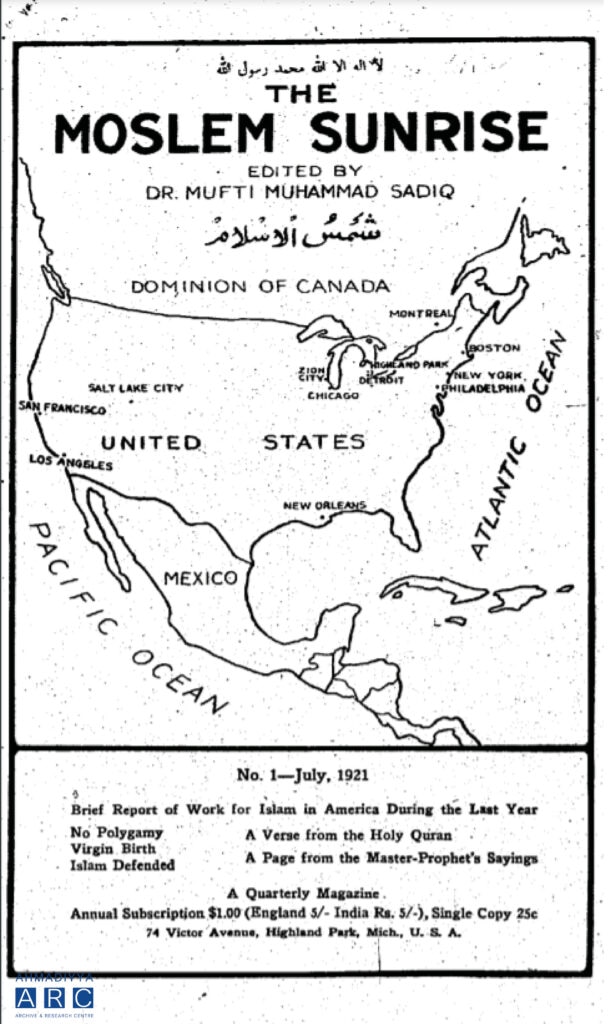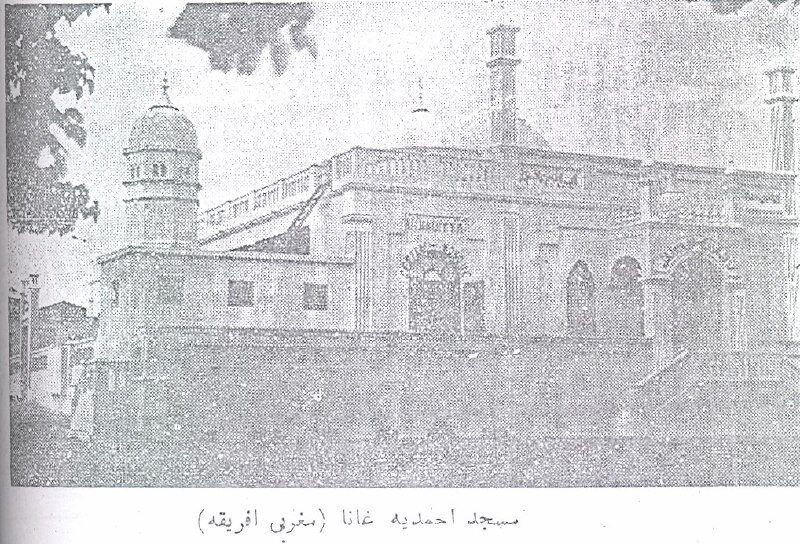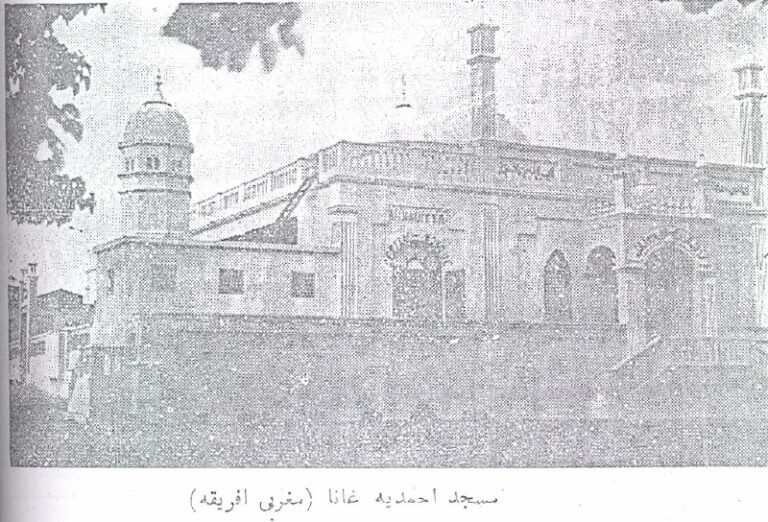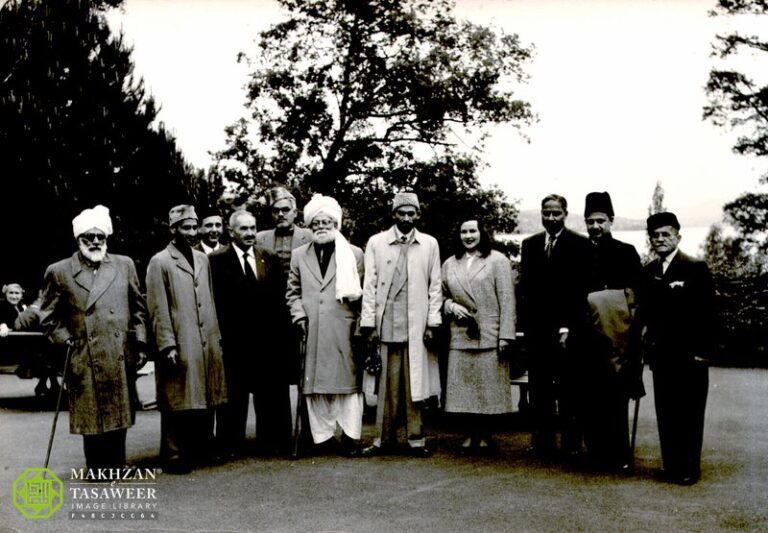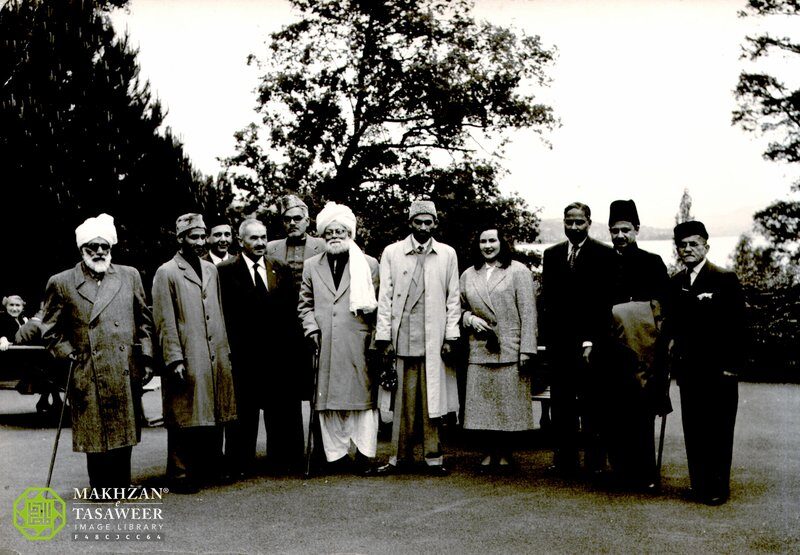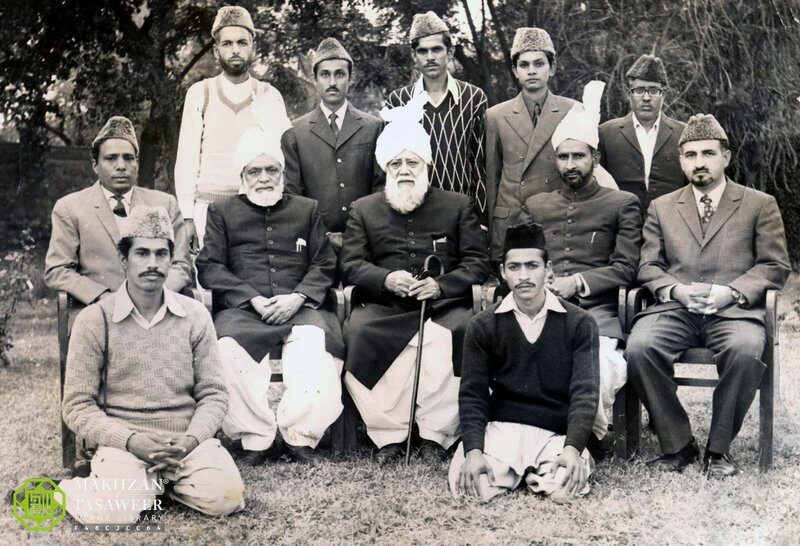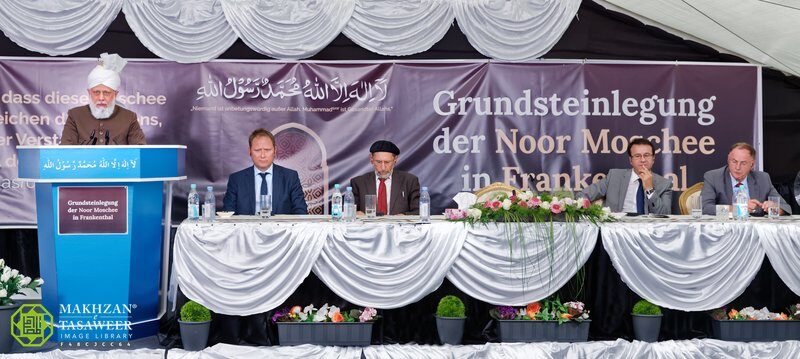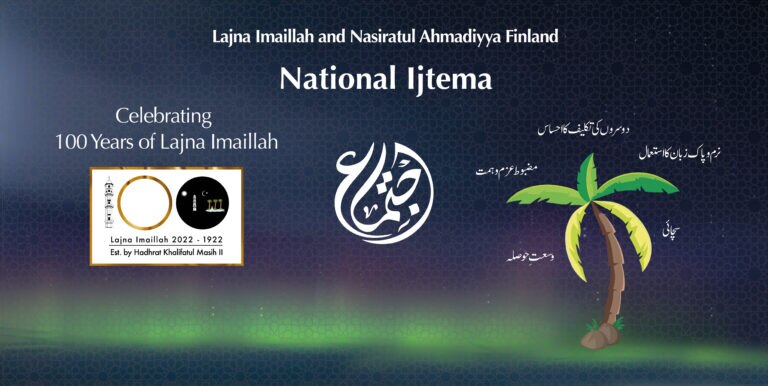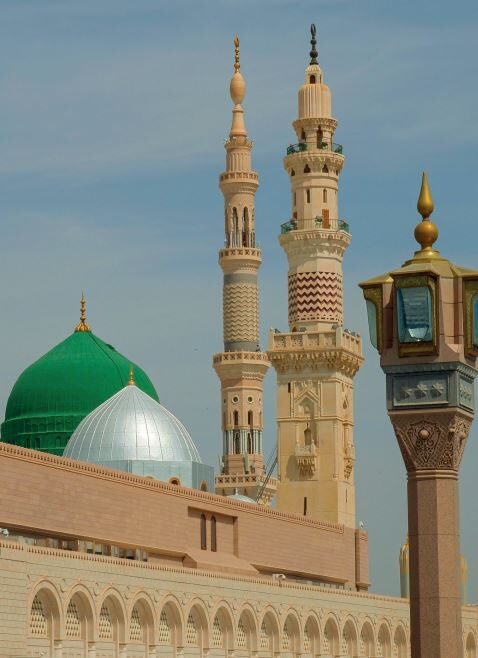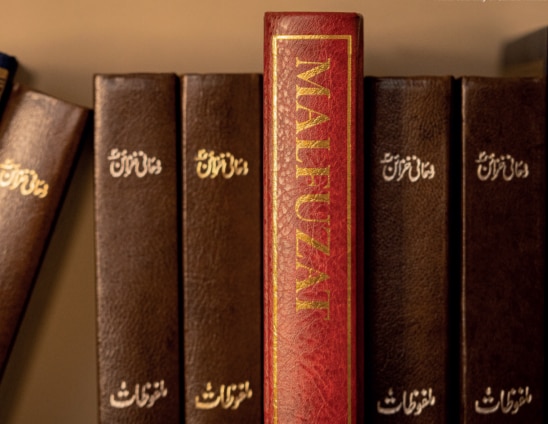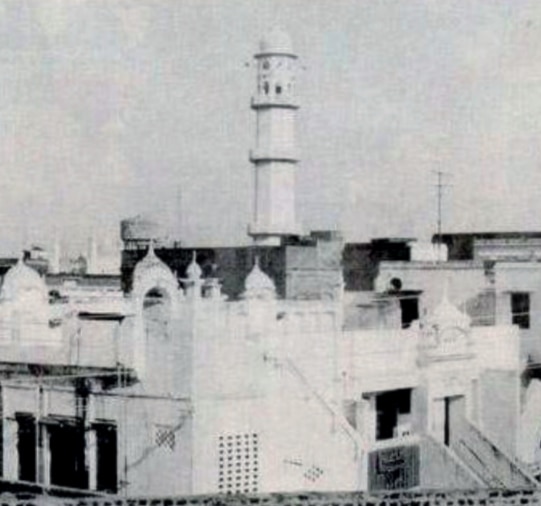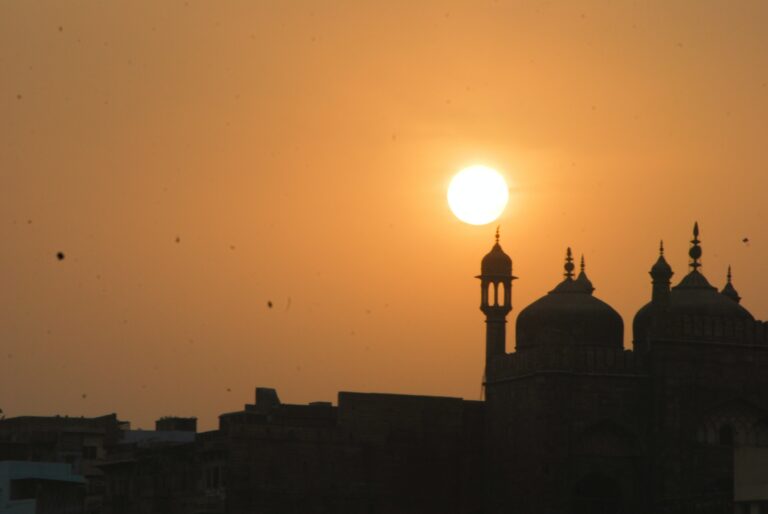Friday Sermon
28 July 2023
Jalsa Salana UK 2023: Guidance and Advice
After reciting the tashahud, ta‘awuz and Surah al-Fatihah, Hazrat Khalifatul Masih Vaa stated:
By the grace of Allah the Almighty, the Jamaat-e-Ahmadiyya UK’s Jalsa Salana is commencing today. By the grace of Allah the Almighty, the Jalsa has been taking place here in the presence of Khilafat for approximately the last four decades. Initially, the Jamaat here in the UK had a lot to learn due to the large-scale preparations, for which Hazrat Khalifatul Masih IVrh paid personal attention and imparted guidance. And, alongside that, experienced individuals were also called from Rabwah to teach the work, among whom was Afsar Jalsa Salana, Chaudhary Hameedullah Sahib, who provided a lot of assistance.
In 1985, the first annual gathering took place here [in the UK] in the presence of Hazrat Khalifatul Masih IVrh. Prior to it, a Jalsa was held in 1984, but it was on a very small scale – however, the first formal Jalsa took place in 1985 and had an attendance of perhaps only 5,000 people, yet despite that, the administration at the time was very worried. Everyone was worried as to how they would be able to manage all the arrangements. But now, by the grace of Allah the Almighty, the attendance at the ijtemas of Khuddam-ul-Ahmadiyya [UK] alone, or that of Lajna Imaillah [UK] is much greater than that, and these auxiliary organisations are able to organise these events in an excellent manner. Hence, the UK Jamaat has become very well-experienced with regard to making all these various arrangements.
Seeing as there has been a three to four years break since a full-scale Jalsa has taken place, the administration was concerned on this occasion once more as to whether or not they would be able to cater for the predicted attendance of over 40,000 people. However, by the grace of Allah the Almighty, I am hopeful that the workers will be able to tend to their duties in an excellent manner. Masha-Allah, those who live here, in fact, even those who were born and raised here and have now reached an age of maturity, have become experienced enough to fulfil their duties in the best manner.
Last Sunday, I inspected the arrangements that had been made until that point, and by the grace of Allah the Almighty, I found the workers in every department to be well-prepared and aware of their roles. Thus, with Allah the Almighty’s grace, all the concerns were alleviated. As for the concern of the administration that there could be some shortcomings due to the Jalsa being organised on a large-scale once more after a break, insha-Allah, these worries of the administration will also be removed, on the condition that our focus always remains on drawing the blessings of Allah the Almighty. No work of ours is completed through one’s mere aptitude or experience, rather, it is purely out of the grace of Allah the Almighty. In the previous sermon, I also briefly mentioned that, in accordance with the teaching of Allah the Almighty and His Messengersa, each and every person on duty and those in charge must carry out their duties with hard work, excellent morals, prayers while seeking the help of Allah Almighty.
When this happens, then Allah the Almighty will shower His blessings. We have presented ourselves to selflessly serve the guests of the Promised Messiahas, who have travelled here purely for a religious purpose.
Thus, I reiterate once again to the workers that the passion with which you have presented yourselves to serve, you must continue to uphold this same passion for however long you are serving in your respective duties. Where you are fulfilling the rights of serving the guests, never forget this fact that we must also fulfil the rights of worshipping Allah the Almighty; we must safeguard our prayers and we must strive to make ourselves pure by deriving benefit from this atmosphere at every moment. Having done true justice to your duties, you should never think that you have fulfilled your objective. Without worship, our objective cannot be achieved. Thus, those children, youth, men and women that are on duty, should also remember to fulfil this right [due to Allah the Almighty] as well.
After this, I wish to also say a few things today to the guests as well who have come to the Jalsa. Every attendee of the Jalsa should always bear in mind that they should not regard the things I am about to say as mere formality; that I have simply said them and you have heard them and that is enough; that should not be the case. In fact, it is necessary to implement these as well. The first, and most important matter is that all those who have come here to participate in the Jalsa should remember the words of the Promised Messiahas that this Jalsa is not like other worldly gatherings. (Shahadatul Quran, Ruhani Khazain, Vol. 6, p. 395)
The purpose for which we are attending the Jalsa is to improve our spiritual, intellectual, and moral condition and also to establish the love of Allah the Almighty and His Messengersa in our hearts. If one adopts this mindset, one will not remain focused on worldly things. And when one’s focus is not on worldly things, then even if there are certain shortcomings in certain arrangements of the Jalsa, the guests will not even feel them; they will think that even if there is any shortcoming on the part of their hosts or the organisers of the Jalsa, it makes no difference to them. Their purpose is solely to improve their spiritual and intellectual condition, which can be achieved by benefitting from the proceedings and speeches of the Jalsa.
Hence, the first point is that every attendee of the Jalsa should ensure that they do not wander about during the Jalsa and instead listen to the entire proceedings of the Jalsa. Then, during the breaks between the Jalsa sessions for food, prayers and meeting with friends, that time should also be used in the most efficient manner. If there is some free time, it should not be spent simply shopping at the bazaar; rather, the Ishaat Department has set up stalls for the Jamaat’s books, which should be visited. Similarly, various central departments have exhibitions, such as Makhzan-e-Tasaweer, The Review of Religions, Tabligh and the Archive Department [Ahmadiyya ARC]. You should visit these and improve your knowledge of faith and history.
In short, you should separate yourself entirely from worldly endeavours and strive to improve in your faith and knowledge. When this happens, it will also improve mutual love and relations. Even if there are shortcomings in the administration or the hosts, then they will not be felt. A beautiful atmosphere will be established, which will reflect a true atmosphere of believers. If we do not achieve this, then we cannot create the atmosphere that is the objective of the Jalsa. If people begin searching for weaknesses and start complaining, then in such a large-scale and temporary operation, dozens of complaints can arise, as there cannot be perfection. There may be many shortcomings that can cause restlessness. For example, the Department of Food aims to provide the guests with every possible ease when it comes to serving food by ensuring that there is no shortage of the food being served or by having volunteers on duty try to serve the guests while exhibiting the highest morals. However, at times, there could be a discrepancy in the estimation and there may not be an adequate amount of food available, but rather than expressing anger, the apologies of the workers should be accepted wholeheartedly. I will present an incident from the life of the Promised Messiahas that illustrates the example he set for us in such a situation.
On one occasion, the Promised Messiahas was on a journey and was engaged in his work and thus he did not eat dinner at the time it was being served to the other guests. The workers must have laid the food out and then later cleared it up without realising whether the Promised Messiahas had eaten or not. The organisers also did not pay attention as to whether the Promised Messiahas had eaten, as he was busy with his work. Nonetheless, later in the night, the Promised Messiahas felt hungry and asked if there was any food, upon which the workers became extremely worried. They became worried because all the food had been eaten by the other guests and the workers and there was nothing left. It was late at night and the shops were closed as well, so nothing could be ordered from a local food shop either. The Promised Messiahas somehow came to learn that the food had finished and that the organisers were anxiously working to quickly cook something. The Promised Messiahas said, “There is no need to be worried. There must be some leftover pieces of flatbread on the table, just bring those.” And so, he ate those leftover pieces of flatbread and comforted the workers. The narrator says, “Had the Promised Messiahas instructed for food to be cooked at that very instance, then it would have been a source of honour for us, and we would have done so with great pride, seeing it as another opportunity to serve, which is full of blessings. However, he felt that it would be difficult for us to do so and stopped us, saying that there was no need.” (Sirat Hazrat Masih-e-Maudas [2016], Hazrat Sheikh Yaqub Ali Irfanira, p. 322)
Thus, this is an example that we should keep in mind. If we do not arrive at the scheduled times for food, then we should not have any complaints and we should eat whatever is available. Sometimes, when the salan [stew] finishes, some lentil soup is cooked quickly – as it is easy and quick to make – so that no guest is left hungry. Hence, the guests should also eat it happily. Similarly, the Promised Messiahas also taught the lesson that food should not go to waste. The Promised Messiahas knew that people leave pieces of flatbread, which is why he asked for those to be brought so that he could eat them. Here as well, I will say to the guests that those making the flatbread do their level best to make the best possible flatbread, however, it is possible that in some instances there are some that are a bit undercooked or some that are a little burnt, and so only in extreme circumstances they can be left [to not eat], however, generally this should not be the case. If there are some minor differences in the quality of the flatbread, it should not be wasted. There is a roti plant operating here where volunteers work with great time and effort and every year, they make new improvements as well. The guests should remember that the people cooking the food or making the flatbread are not professionals in these fields; rather, they are volunteers who come from different professions, and so the sincerity and passion with which they serve should always be appreciated. To display a high standard of morals, being kind, meeting each other with a smile and making sacrifices for others is not the sole responsibility of volunteers; rather, the guests should also be especially mindful of this. Without morals, there is nothing. A peaceful atmosphere cannot be established through the good morals of the workers alone; rather, all attendees of the Jalsa must exhibit good morals. Both the ladies and the men should remain mindful of this. Previously, I referenced a Hadith that smiling is a part of faith or that smiling is a form of charity. (Jami‘ at-Tirmidhi, Hadith 1954)
This should always be remembered.
With regard to the expectations of the Promised Messiahas when it comes to the standard of high morals displayed pertaining to guests at the Jalsa, the Promised Messiahas states:
“I say most truly that a person’s faith can certainly not be complete until one prefers the comfort of his brother over that of his own as far as possible. If a brother of mine sleeps on the floor in front of me, despite being weak and ill, whereas I, being hale and healthy, take possession of the bed so that he may not sit on it, then how pitiable is my condition. And how sorrowful would be my condition if I were not to get up and give the bed to him by way of love and compassion, preferring the floor for myself. If my brother were to be ill and suffering from some pain, then how pitiable would my condition be if in such a situation I would be sleeping comfortably and would not try my best to bring him relief and comfort. And if some brother in faith of mine speaks harshly to me out of haughtiness (this is very important for the Jalsa), how pitiful would it be if I, too, wilfully and knowingly, respond to him harshly. I should, on the contrary, patiently bear what he says and earnestly supplicate for him in my daily prayers, crying and weeping, for he is my brother and is spiritually ill. If my brother is naive, or not very learned, or makes a mistake out of naivety, I should not ridicule him or hastily frown at him in anger, or tell others of his shortcomings out of ill intention. All these are ways to destruction and no one can become a true believer unless he is tender-hearted and until he considers himself to be the most lowly in comparison with all others and unless all his haughtiness is far removed. Being of service to people is a mark of distinction for those who truly serve their people. And speaking to the poor in a kind manner while bowing humbly is the characteristic of those accepted by God. And responding to mischief with beneficence is the sign of good fortune. And suppressing anger and tolerating harsh words are acts of extreme courage.” (Shahadatul Quran, Ruhani Khazain, Vol. 6, pp. 395-396)
This was general guidance that the Promised Messiahas gave to his followers. These are the basic moral traits that should be exhibited at all times, especially during the days of Jalsa. If we act upon these teachings during these three days, then, at least to some degree, we will develop the habit of acting upon them in our daily lives. However, this is conditional upon having the intention of attending the Jalsa to improve in terms of spirituality and morals. By reflecting upon what one learnt by attending the Jalsa, one can then perpetually establish a beautiful society wherein one seeks to fulfil the rights of others. To give precedence to another over oneself is not an easy task, it requires great struggle. This is why the Promised Messiahas said that this matter is related to faith. Such a person’s faith cannot be complete who does not possess within them the quality of sacrificing their own desires and fulfilling the rights of others. Allah the Almighty does not decree one to be worthy of great reward simply on the basis of small things, in fact, He bestows in abundance upon those who excel in striving. Fulfilling the rights of others is a very difficult task, and that is why the Promised Messiahas states:
“A person may be able to fulfil the rights owed to Allah, but fulfilling the rights of others is very difficult.” (Malfuzat [1984], Vol. 8, p. 19)
And so, everyone should adopt the mindset of giving preference to their brothers over themselves. If every one of us adopts this mentality with the thought that the rights of others must be fulfilled in order to attain the pleasure of Allah the Almighty, then society will become one of love and affection. The expression of this love and affection will not only remain limited to the three days of Jalsa; rather, one’s entire life becomes an example of love and affection. How beautiful indeed is the guidance that the Promised Messiahas gave for the establishment of such a pure society. He said that it would be pitiful if someone were to speak harshly, and his response was just as harsh. Instead of responding harshly, he should pray for him. This is the society that Islam seeks to bring about, and that the Promised Messiahas desired to see in his followers. The Promised Messiahas has so beautifully stated that if bad qualities are found in a person, then they are spiritually ill, and it becomes one’s responsibility to cure them or see to it that they are cured. This is not just for the reformation of others but also for one’s own reformation. In fact, this applies more to us as compared to others, because one can only cure the spiritual illness of another when that person themselves is first cured of that very illness. Hence, in order to avoid these ills, we must avoid finding faults in others, become tender-hearted for others, and eradicate any arrogance from within us.
Hence, both the hosts and the attendees of the Jalsa must carefully ponder over this. If we strive to overlook each other’s faults and establish an environment of peace and compassion, then these three days will achieve the purpose for which we have gathered here. At times, enmities arise over the most trivial of matters, which brings about an atmosphere where people berate one another or sometimes escalate to the point of physical altercations. If this is the environment people desire and they do not want to control their emotions, then it is better that they do not attend the Jalsa. Similarly, if the duty holders cannot control their emotions, then they should not perform duties. Difficulties arise, especially when it comes to traffic, as there is limited space for parking. Parking is made available according to the number of cars, but perhaps this year perhaps there will be more cars, so the space for parking will be limited. If some people are sent to different sites [for parking], then they should show cooperation. Generally, by the grace of Allah the Almighty, people are cooperative because this is how the members of the Jamaat have been trained. However, there are some people who are short-tempered, or who think that they will miss part of the programme of the Jalsa if they are sent to a different site because they will be delayed in getting to the Jalsa site. Such people should remain mindful of the limitations of the organisers. If they are so concerned about attending the Jalsa, then they should arrive ahead of time. Also, those on duty should try to explain things to them in a loving manner instead of arguing with them. May Allah the Almighty make it so that not a single instance of people being harsh to one another arises. May Allah the Almighty enable the guests to avoid putting the workers through any sort of trial and may Allah the Almighty grant forbearance to the workers. May Allah the Almighty make it so that these three days are not simply limited to singing poems of love and affection, but that the training obtained during these three days sparks the establishment of such a society that fosters an environment of love and affection, which is the hallmark of an Islamic society.
The Promised Messiahas has constantly drawn our attention on various occasions towards developing such pure thoughts of virtue and piety. In one instance, while advising guests about their responsibilities and drawing attention towards developing pure thoughts, the Promised Messiahas states:
“One should carry out acts of virtue solely for the sake of pleasing God Almighty and fulfilling His commandments, regardless of whether it yields reward or not. Faith can only be complete when such a thought and idea [of attaining reward] is eliminated.” In other words, one should not think about doing such things only for the sake of attaining a reward. No. In fact, it should be done to attain the pleasure of Allah the Almighty. The Promised Messiahas states, “Although it is true that God Almighty does not let any act of virtue go to waste:
اِنَّ اللّٰہَ لَا يُضِيۡعُ اَجۡرَ الۡمُحۡسِنِيۡنَ
‘Surely, Allah suffers not the reward of those who do good to be lost.’ [Ch. 9: V.120] However, the reward should not be the goal of those who do good. If a guest comes here only because they think that they shall be able to relax, they will be provided with cold drinks, or they will be presented with luxurious food, then they have come solely for these things. However, it is already the host’s responsibility to be as hospitable as they possibly can and avoid any shortcomings in this regard and provide as much ease as possible, and certainly, they do. However, for the guests to have this expectation themselves is a source of harm for them.” (Malfuzat [1984], Vol. 2, pp. 371-372)
This is the mindset that guests should remain mindful of. There are some guests who do not have relatives here [in the UK] and so they stay in the Jamaat accommodations. However, sometimes they make such demands for accommodation that they are difficult to fulfil. Similarly, there are other amenities that cannot be provided; the organisation of Jalsa Salana is so vast that it is impossible to provide such things. Most people are understanding in this regard. Just two days ago, a family came to meet me who, despite having informed the administration well in advance, due to some miscommunication, could not be provided with the accommodation they desired. And so, they made their own arrangements at a relative’s home. Despite their relative’s home being very small due to which they had to lay mattresses or sheets on the ground to sleep on, and both the hosts and the guests would have faced difficulty, however, they were still happy because they knew they would at least get to attend the Jalsa. They said these things in a jovial manner and even then, it was only after I asked them about it; they didn’t make any complaints. This is the conduct of most guests. There are others who come to meet me, and knowing their disposition, I do not think that they will be able to stay under the Jamaat accommodations, yet they happily stay in them despite me thinking the opposite that perhaps they will not be able to stay there. But they do, and they do so happily, and the majority of the people are like this. But there are also those who complain a great deal. If they were to spend these days cheerfully for the sake of Allah the Almighty, then Allah the Almighty will bless them in other ways. As for the accommodation arrangements here, whether in tents or communal spaces, I believe they have all filled up due to the large number of people. And so, it is possible that such arrangements will have to be made that may cause some difficulty, but even those arrangements should be happily accepted by the guests. In any case, as the Promised Messiahas has stated, it is the responsibility of the hosts to ensure as much as possible that the guests are afforded ease, and may Allah the Almighty grant the best reward to the guests for enduring minor difficulties. They should keep this in mind and try to seek [the ability to do this] from Allah the Almighty.
What is the teaching of the Holy Prophetsa regarding the establishment and spread of peace and security in society? Once, a person went to the Holy Prophetsa and said, “O Messengersa of Allah! What is the best Islam?” The Holy Prophetsa replied, “To feed the needy and to say ‘Salam’ to everyone, whether you know them or not.” (Sahih al-Bukhari, Kitab al-Iman, Hadith 12). This is the beautiful principle for establishing love and brotherhood, peace, and security in society, which, if implemented, can bring about a society that fosters peace and security. Much of the unrest in the world is due to the poor becoming poorer. Even today, there are millions of people who do not even get two meals a day. If they eat, then they don’t have a home. These things are found even here, in countries like the UK, which are considered to be wealthy nations – although they no longer have the same wealth as before. Still, they are far better than many others, however, there are thousands of people, even children, on the streets because they are unable to find food or housing due to inflation. It is a fundamental teaching of Islam to feed the hungry. If only Muslims understood this principle and their leaders honoured the rights of their people and rather than gathering wealth for themselves, they fulfilled the needs of the poor and needy, thereby removing the restlessness and injustices from society! These days, much of the restlessness is spreading because of this very reason.
Then, the Holy Prophetsa instructed to say “salaam”. (I have simply stated [the above] as an additional point.) The Holy Prophetsa instructed to make the greeting of “salaam” common in society. Conveying “salaam” is not a mere verbal utterance; rather, when a person says “salaam” from their heart, they also actively think about conveying and spreading peace. Such people also have positive sentiments for one another and they strive and pray to remove others’ difficulties. Thus, during these days, every Ahmadi should strive to spread the message of peace, make a habit of saying “salaam” and establish mutual sentiments of positivity. People very happily meet and courteously say “salaam” to those who render them some sort of benefit, or they very happily meet those with whom they have a relationship. But true peace and security is established when people who harbour enmity towards one another remove that enmity and the prayer of peace for one another emanates from their hearts. During this Jalsa, such people should endeavour to remove their enmities and convey peace and they should generally spread peace throughout the entire atmosphere. May Allah the Almighty enable everyone to act upon this and may the environment of Jalsa be one of peace and security; may high morals and fulfilling the rights of others become a permanent aspect of our lives.
I also wish to draw attention toward some general points pertaining to the arrangements of the Jalsa that everyone should bear in mind.
The first point is that you should try to listen to the proceedings of the Jalsa quietly and attentively. It should not be the case that you listen to some speakers and not others. I have mentioned before as well that you should come and sit [attentively] at the Jalsa. The Promised Messiahas has expressed great displeasure over the fact that people listen to some speakers because of preferring their passionate oratory, but then they do not listen to others. (Malfuzat, Vol. 1, pp. 398-401) The speakers prepare their speeches with great effort. All the attendees of Jalsa should participate in the entire programme of the Jalsa and strive to attain spiritual and intellectual benefits.
Then, you should also pay special attention to the remembrance of Allah and invoking salutations upon the Holy Prophetsa [durood] during the days of Jalsa. We are currently passing through the days of Muharram, and today is the 10 Muharram and durood should be recited. It should be recited with the thought that Allah the Almighty may continue elevating the status and rank of the Holy Prophetsa; that He may continue granting his message success and victory; that He may make his Divine Law lasting and grant it supremacy; that we may benefit from the prayers he made for his ummah [nation] and that Allah the Almighty may save this ummah from all forms of deterioration. Today, what is there that Muslims are not doing in the name of Allah the Almighty and His Messengersa. They have defamed Islam. May Allah the Almighty grant them understanding and may they accept the Imam of the Age. Prayers are [especially] accepted on Fridays, so keep this in mind when you are praying. On this day, it was in the name of Allah the Almighty and His Messengersa that so-called Muslims inflicted cruelties upon the spiritual and physical progeny of the Holy Prophetsa. Now, these people are inflicting the same cruelty upon the spiritual progeny of the Holy Prophetsa and the Community of the Promised Messiahas. The situation in Pakistan these days is extremely painful; opponents are trying to cause harm to the Jamaat from every direction and they claim to be doing so due to their love for the Holy Prophetsa and that, God-forbid, Ahmadis are guilty of committing blasphemy against the Holy Prophetsa. However, our faith is rooted in the fact that the Holy Prophetsa is the Seal of the Prophets and that it is necessary to believe in that law that he brought. In reality, we are those who hearkened to the command of the Holy Prophetsa and accepted the Promised Messiah and Imam Mahdi who was to come. Regarding the degree to which the Promised Messiahas loved the Holy Prophetsa and Allah the Almighty’s blessings upon him as a result, the Promised Messiahas states:
“Once, it so happened that I was completely immersed in reciting durood, in other words, sending salutations upon the Holy Prophetsa for an extended period of time. I was convinced that the paths of God are very fine and the only way to find them is through the Holy Prophetsa, as God states:
وَابۡتَغُوۡۤا اِلَيۡہِ الۡوَسِيۡلَةَ
[“And seek the way of approach unto Him’ (Surah al-Ma’idah, 5:36)]. Then, after a while, I saw in a vision that two water carriers came, one entered my home from an inner path, and another entered my home from the outer path and they were carrying vessels of light on their shoulders (they were not filled with water, but with light), and they said, ھٰذا بما صلّيت علٰي محمّدٍ.” (Haqiqatul Wahi, Ruhani Khazain, Vol. 22, p. 131, [footnote])
That is, “The reward of this light is because you are sending salutations upon the Holy Prophetsa.”
This was the degree to which the Promised Messiahas loved the Holy Prophetsa, and this was how Allah the Almighty rewarded him. The Promised Messiahas has expressed on countless occasions that whatever he attained was through the Holy Prophetsa, sending salutations upon him and being immersed in his love. How then can it be considered that he strayed from the Holy Prophetsa? In any case, during these days, along with the remembrance of Allah the Almighty you should also especially focus on reciting durood. May Allah the Almighty soon spread those blessings throughout the world which He promised to the Holy Prophetsa.
Whilst in the Jalsa marquee, the ladies especially should ensure that they instil in those children who possess some understanding that they should sit quietly during the Jalsa sessions. It is the training that is done at a young age which remains firm in the mind. Those women who sit in the children’s marquee should also try not to speak too much and instead should focus on the proceedings. Sometimes the complaint is received that the children do not make as much noise whereas the women use them as an excuse to converse more amongst themselves. Due attention should be given to this.
Similarly, as it pertains to security, every attendee, both on the men’s and ladies’ sides should remain aware of their surroundings. This is an important method of security. Similarly, you should carefully read the guidance that is found in your programmes and act upon it as well. May Allah the Almighty enable everyone to benefit from the Jalsa in the best way, safeguard against every evil and shower us with His mercy and blessings. [Amin]
(Official Urdu transcript published in the Daily Al Fazl International, 18 August 2023. Translated by The Review of Religions.)
